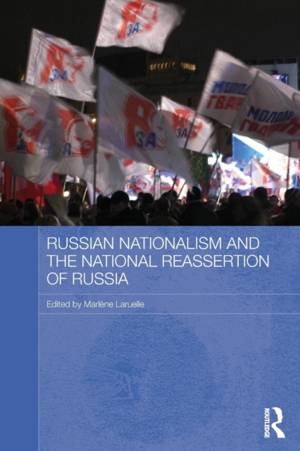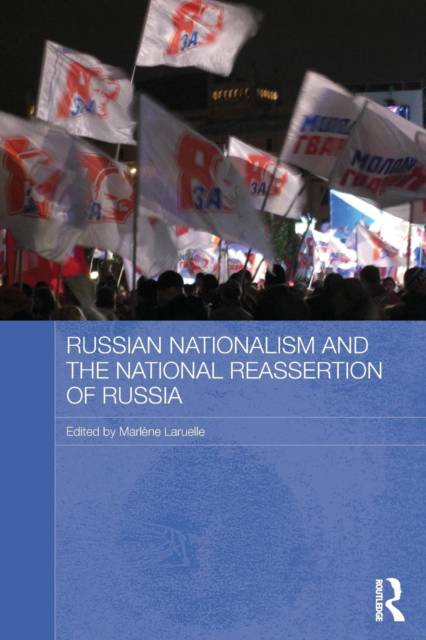
- Retrait gratuit dans votre magasin Club
- 7.000.000 titres dans notre catalogue
- Payer en toute sécurité
- Toujours un magasin près de chez vous
- Retrait gratuit dans votre magasin Club
- 7.000.0000 titres dans notre catalogue
- Payer en toute sécurité
- Toujours un magasin près de chez vous
Russian Nationalism and the National Reassertion of Russia
Description
Military action in South Ossetia, growing tensions with the United States and NATO, and Russia's relationship with the European Union demonstrate how the issue of Russian nationalism is increasingly at the heart of the international political agenda.This book considers a wide range of aspects of Russian nationalism, focussing on the Putin period. It discusses the development of Russian nationalism, including in the Soviet era, and examines how Russian nationalism grows out of - or is related to - ideology, culture, racism, religion and intellectual thinking, and demonstrates how Russian nationalism affects many aspects of Russian society, politics and foreign policy. This book examines the different socio-political phenomena which are variously defined as 'nationalism', 'patriotism' and 'xenophobia'. As Russia reasserts itself in the world, with Russian nationalism as one of the key driving forces in this process, an understanding of Russian nationalism is essential for understanding the dynamics of contemporary international relations.
Spécifications
Parties prenantes
- Editeur:
Contenu
- Nombre de pages :
- 284
- Langue:
- Anglais
- Collection :
Caractéristiques
- EAN:
- 9780415590495
- Date de parution :
- 01-06-10
- Format:
- Livre broché
- Format numérique:
- Trade paperback (VS)
- Dimensions :
- 156 mm x 234 mm
- Poids :
- 426 g

Les avis
Nous publions uniquement les avis qui respectent les conditions requises. Consultez nos conditions pour les avis.





